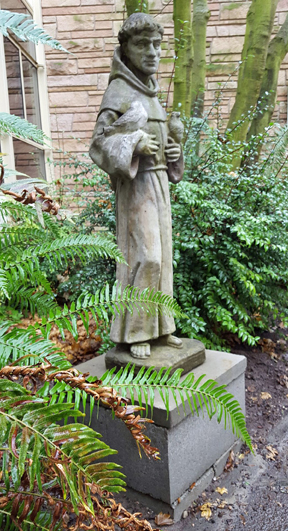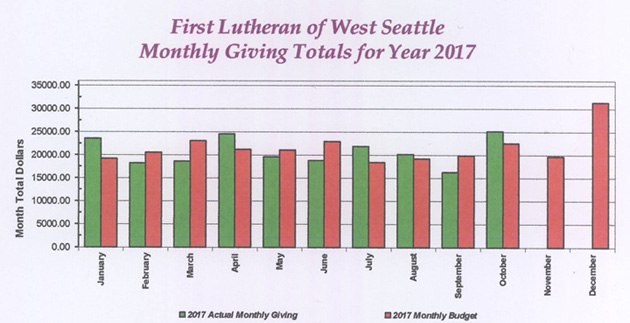December 2017
|
I know we like to think of ourselves as the crown of creation,
the greatest of all creatures on earth (Psalm 8:5) – contrary to
Hebrews 2:9. But Job 25:6 will not stand for it – calling us
instead maggots and worms. And lest we think Bildad got it wrong
in Job 25, there is always Psalm 22:6 – “I am a worm and no
man.”
Advent begins December 3. It is a time of repenting and fasting
that our hearts and minds might be properly prepared for the
celebration of Christmas, December 24 through January 6 – the
Twelve Days of Christmas and Epiphany. Realizing that we’re
worms will go a long way toward helping us fast and repent as we
should and get ready for Christmas knowing that as worms we are
not worthy of the niceties of life.
Here is how Luther put it in his beloved
Notes on Ecclesiastes:
“God is such a great majesty in heaven, and you are a worm upon
earth. You cannot speak about the works of God on the basis of
your own judgment…. [So] don’t use many words, but keep your
mouth shut! You will not impose a rule on God” (Luther’s
Works
15:78).
In Kierkegaard’s great 1847 book,
Works of Love,
he cautions that self-denigration, while good in and of itself,
must never be allowed to stymie us – throwing us into “the folly
of the moment” (KW 16:23). So keep that in mind too this Advent
when you rediscover what you really are.
Pastor Marshall
|
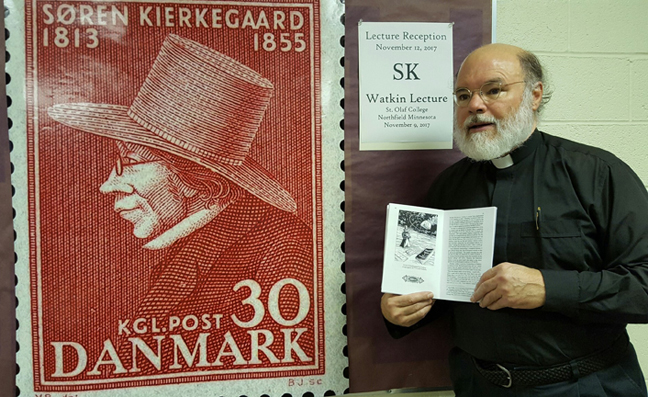
Lecture Reception
In Northfield I was asked why Kierkegaard didn’t start his own
church as Luther did if they were so much alike (as I argued
they were in my lecture). Well, first of all, Luther wasn’t
planning on setting up a new church but only on reforming the
Roman Catholic Church. Secondly, Kierkegaard wanted to restore
the New Testament vision of the Church to the church on earth
[see my Kierkegaard for
the Church (2013) pp. 233, 318 and
Kierkegaard in the Pulpit
(2016) pp. 65, 356] – specifically to the Lutheran
congregations. And finally, like Luther, Kierkegaard cared
deeply about, and addressed in detail, such churchly matters as
worship, prayer, hymns, confession & absolution, and the
sacraments.
At the reception I also gave my short sermon on Frosty the
Snowman and Kierkegaard’s book,
Sickness Unto Death
(1849). I’ve been reading and teaching
Sickness Unto Death
for over forty years, and this sermon was a breakthrough for me.
Up until writing it this year, I had thought
Sickness Unto Death
was primarily about the abstractions of sin, despair and the
sick self, and how being grounded in God was an antidote to
them. But now I see the book as aimed at overturning the
calamity of Christmas and its distorted incarnation, by way of
sharp, critical preaching. The many criticisms of bad preachers
and sermons in Sickness
Unto Death are what led me to this view and my Frosty
sermon. (Nowhere among the twelve explanatory essays in the
Interactional Kierkegaard
Commentary on
Sickness Unto Death, published in 1987, are these dozen or
more passages addressed.) Before this year I had also skipped
over them as minor matters in
Sickness Unto Death –
but not anymore. |
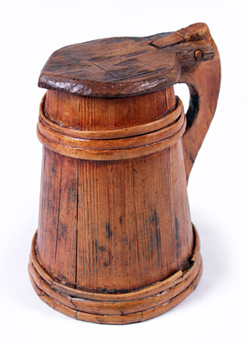
Luther & Beer “Made from
bursting granaries and groaning spice rack, monastic beers were
brewed meaty and flavorful…. [Their] goal was quality and
self-sufficiency; their batches were small, their brewing time
limited by prayer and study. Abbey beers – as many still are
today – were rare, available only in limited amounts, and often
only at the abbeys themselves. Hops changed all that. If
monastic beer has its foundation in cloistered purity, hopped
beer was based on trade…. Most important for medieval brewers
working outside the church, hops were largely ignored by the
faithful. The abbess, mystic, and early Christian botanist
Hildegard of Bingen said in her twelfth-century herbal that hops
‘were not very useful.’ They ‘make the soul of man sad, and
weigh down his inner organs.’ And so hops fell outside the
church’s Gruitrecht
[brewing license]. The powerful plant –
Humulus lupulus, or
climbing wolf [hops]; it spreads vigorously if left unchecked –
was untaxed and free for the plucking…. When [Luther and]
Protestantism arrived on the scene in the 1500s, the organs of
the Catholic Church still controlled, through both symbolism and
their Gruitrecht
taxes, the bulk of the medieval herb garden, so the new
religion, like the age’s burgeoning community of secular,
money-minded brewers, championed the hop…. During [Luther’s]
first bout with church authorities at Worms in 1521, he sipped
from a keg of hoppy bock beer, a gift of solidarity from the
duke of Brunswick.”
[William Bostwick,
The Brewer’s Tale: A
History of the World According to Beer (New York: Norton, 2014) pp.
59–60, 62–63.]
|
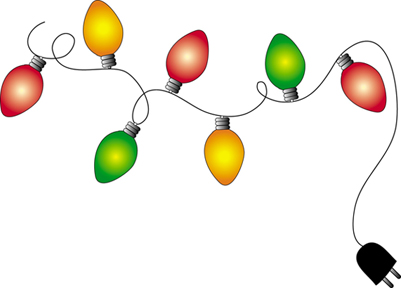
ST. NICHOLAS FAIRE
Sunday, December 10 from 4:30pm to 7:30pm
Here’s
a sampling of the gift baskets that will be available to bid
on…….
Children’s Books
Mariner’s Gear
Warm Weather Gear
Beer & Wine
Gardening
Baked Goods
Seahawks Gear
Olive Oil/Vinegar
Ceramic Items
U of W Gear
Painting Supplies
Handmade Quilts
Pasta & Sauce
Outdoor Accessories
Linens/Pillows
Kitchen Gadgets
Tools
“Hello Kitty”
Holiday Items
Wine Glasses
Baking Tools
Storage Containers
Art Supplies
Ice Cream Sundae Items
ETC!
ETC!!
ETC!!!
Plus
gift certificates to many local restaurants and businesses like
JAKS, Elliott Bay Pub & Brewery, Husky Deli, NW Art & Frame,
QFC, Safeway, Trader Joe’s, West Seattle Nursery,
Starbucks, Barnes &
Noble, Target,
Bartell’s, Junction
Hardware, Pagliacci Pizza, Spiros, Amazon,
West Seattle Wine Cellars, Admiral Theater, Pegasus
Pizza, Duke’s, Salty’s, ITunes, Staples, Cupcake Royale, ETC!,
ETC!!,
ETC!!!,
ETC!!!!
But in
order for it to be a success, we need every member to
participate and commit to helping in some manner.
The sign-up sheets will in the hall between classrooms C
& D until Sunday, December 3rd.
If you missed them and still are able to help and/or
contribute in some way, please contact me (Larraine
206-937-6740). We
have tried to make supporting the Faire approachable and within
reach. There are still a few ways each of us can help - make
money donations (make checks payable to First Lutheran
Church of West Seattle, and note it is to be given to the St.
Nicholas Faire),
and help during the Faire.
But the most
important way to support this event is to come and bring your
family, friends and neighbors, and do your Christmas shopping.
The
St. Nicholas Faire has a dual purpose – it benefits 2 very
deserving extended ministries, and it allows us to have a
“party” together with family and friends – while supporting our
neighbors in need from our community.
Now that’s a WIN! WIN!
So please plan to come and join in the celebration.
DON’T MISS IT!!!!!
|
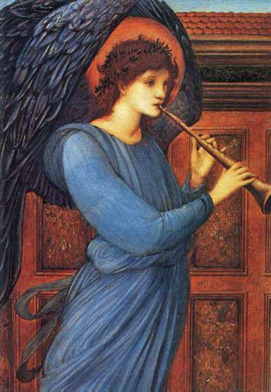
Join us for the Four Sundays of Advent
Sundays:
8:00 am Holy Eucharist, in the chapel
10:30 am Holy Eucharist,
in the nave
8:00 pm Compline,
in the chapel
THE NATIVITY OF OUR LORD
Celebrate with us the great Christmas feast of our Lord's
Nativity.
May these days fill your prayers with thanksgiving and blessing.
Liturgy of Lessons, Carols, & Holy Eucharist
11:00 pm Holy Eucharist, in the nave
Monday, December 25, 2017:
Christmas Day
Festival Liturgy & Holy Eucharist
10:30 am Holy Eucharist, in the nave
Tuesday, December 26, 2017:
St. Stephen, Deacon and Martyr
11:45 am Holy Eucharist, in the chapel
Wednesday, December 27, 2017:
St. John, Apostle and Evangelist
11:45 am Holy Eucharist, in the chapel
Thursday, December 28, 2017
The Holy Innocents, Martyrs 9:00 am Holy Eucharist, in the chapel
To end the 12 days of Christmas be sure to join us on –
Saturday, January 6, 2018
The Day of Epiphany
11:45 am Holy Eucharist, in the chapel
4105
California Avenue SW Seattle,
WA 98116
206-935-6530
www.flcws.org
deogloria@foxinternet.com |
|
Saint Francis Statue
We thank Doris
and Chuck Prescott for the gift of our Saint Francis statue (35
inch high concrete figure), installed in the courtyard next to
the church lounge by Dale Korsmo and Pastor Marshall. Our statue
has him holding two birds, which is fitting since he preached to
them and in 1980 was proclaimed patron of ecology by Pope John
Paul II [Francis and
Clare: The Complete Works (1982) pp. 43, 5].
Even though Martin Luther knew it was a mistake to think that
Saint Francis (1182–1226) could save us from our sins (Luther’s
Works 22:330, 369, 27:141, 30:322), he still “revered’ him
for preaching Christ (LW 22:65). For, indeed, Francis “wisely
said that his rule was the Gospel of Jesus Christ” (LW 44:255,
22:264). That’s because Francis knew he didn’t have anything of
his own to “set against the wrath of God” (LW 26:459). So to
turn Saint Francis into a god like many of his followers have
done is a horrible mistake (LW 9:54, 12:284, 16:245). For
“Francis is not Christ” (LW 22:461). Following him, then, apart
from his great faith in Christ (LW 22:273), would only lead at
best to a “sizzling heaven” (LW 23:34).
Luther thought Francis should have given up on
self-flagellation and instead taken up the “nettles and thorns”
of marriage if he wanted to be spiritually purified (LW 60:279).
But Luther liked that Francis knew the importance of good
hygiene (LW 28:274) and the mandate to give money to the poor
(LW 30:42). But he warned against trusting in that example (LW
52:271). Francis is not to be followed, Luther argued, but only
praised and honored for the gifts God gave him (LW 52:192). He
is not unerring like the Bible is (LW 39:193). So his own
opinions – like all of ours – are but stench (LW 22:271).
Therefore all saints – Francis included – cannot intercede for
us before God (LW 22:368).
Luther was distressed over the way Saint Francis’
followers – mostly within the Franciscan Order – ruined his rule
and way of life (LW 44:268). They bizarrely thought his
underclothing was sacred. They also thought that if they draped
their cowls over the dead they could save them (LW 41:128). But
most of all – due to their vow of obedience – they would not
oppose the Pope for his unfaithfulness (LW 36:190).
So when you look at our Saint Francis statue, thank God
for him, as one of our brothers in the faith, who “echoes”
Christ in a most exemplary way (LW 22:446). And by so doing, may
you also want to do that, and with God’s help bring it about.
|

On Luke 18:24–25
“Aside
from love, which we may assume everybody except heart-numb
psychopaths covet in one guise or another, average Christianized
Americans (with whom I’ve a whole abattoir of bones to pick)
really desire two things: they want to get rich and they want to
go to heaven. (Apparently in that order.) And this despite the
fact that their very own Lord and Savior explicitly warned that
it’s easier for a camel to pass through the eye of a needle than
for a rich man to enter the kingdom of heaven [Luke 18:24–25].
What’s up with that? Do they think Jesus was joking, just
kidding around? Or does each would-be wealthy Christian believe
that an exception will be made in his or her case; that at
heaven’s gate his or her accumulations of property and cash will
elicit a knowing sympathetic wink – as the needle’s eye is
temporarily widened to let him or her squeeze through?”
[Tom Robbins,
Tibetan Peach Pie: A True Account of an Imaginative Life
(New York:
HarperCollins, 2014) p. 20 –
and pp. 252–53 on how Robbins himself has resisted this
temptation.]
|
|
Only $58.00
-----------------------------------------------------------------------------------------------------------------------------------------
Donating to the IRC
Over the last
couple of years, our congregation has been learning about and
contributing to the
International Rescue Committee (IRC) (rescue.org). It is a
long-standing and prestigious, worldwide relief organization.
Currently, in our area, it is resettling many refugees from the
Middle East in south King County.
At this time a $58.00 donation can supply tuition, books and
other supplies a girl needs to attend school for a year in
Afghanistan, Congo or Lebanon. Write a check out to the church
and we will get it to the IRC for you, or contact them directly
yourself. Either way it would be a noble thing to do – helping
girls attend school in places where they are regularly left out. The Church Council |
|
PRESIDENT'S REPORT....by
Bob Baker
PRAYER REQUEST
Please remember to pray for the members of our
congregation, our mission and ministry, our Congregation
Council, and our collective and ongoing stewardship.
Why this request at this time?
Two pressing concerns are prompting this request: one
short term and the other for next year, yet both ongoing.
In the short term, current figures indicate that we may
end up the year $8,000 short of budget, even taking into account
that December historically is the month with the highest
receipts.
Repairs for leaks causing water damage in our aging
building seem to be increasing in frequency, as well as
appliance break downs. Then there is the maintenance of the
grounds that seems to be headed for $4,000 over budget without
any unusual episodic expense to account for the overrun. Grounds
maintenance costs us over $1,000 a month on average.
Cost of living goes up!
In the longer term, we are working on the budget for the
next calendar year. Important to this planning are the pledges
that our members make. Our congregation has an unusually high
percentage of members who make pledges. This helps us plan
responsibly for our stewardship of these offerings.
At the last count, we have received fewer pledges than at
the same time last year, and accordingly have a pledged amount
that is several thousand dollars less.
Expenses keep rising. In the past, receipts have managed
to keep apace. Will they continue to do so?
Hence, this request that in your prayers you remember the
members of our congregation and our collective and ongoing
stewardship! |
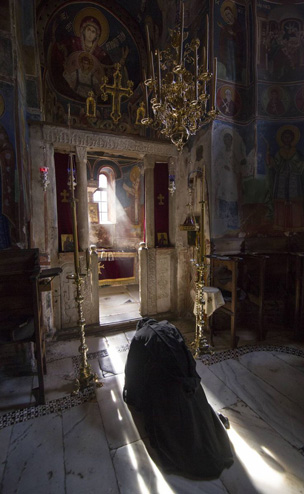 |
|
STEWARDSHIP
Faithfulness in Our Stewardship
Moses proclaims: “You shall take some of the fruit of all the fruit of the ground, which you harvest from the land that the Lord your God gives you.” “Then the priest shall take the basket from your hand,
and set it down before the altar of the Lord your God.”
(Deuteronomy 26:2, 4) When we give
to our church or other places where people in need are helped,
we are thanking God for this journey to the promised land.
We are giving thanks for the love of God in Christ Jesus
our Lord. May we
keep this in mind as we plan our giving to the church over the
next year.
Thanks be to God!
─Melanie Johnson, Church Council |
|
Ecclesiastes 7.14
Monthly Home Bible Study, December 2017, Number 298
The Reverend Ronald F. Marshall
Along with our other regular study of Scripture, let us join as
a congregation in this home study. We will
study alone then talk
informally about the assigned verses together as we have
opportunity. In this way we can "gather
together around the
Word" even though physically we will not be getting together
(Acts 13.44). (This study uses the RSV translation.)
We need to support each other in this difficult project. In 1851
Kierkegaard wrote that the Bible is "an extremely dangerous
book.... [because] it is an imperious book... – it takes the
whole man and may suddenly and radically change... life on a
prodigious scale" (For
Self-Examination). And in 1967 Thomas Merton wrote that "we
all instinctively know that it is dangerous to become involved
in the Bible" (Opening
the Bible). Indeed this word "kills" us (Hosea 6.5) because
we are "a rebellious people" (Isaiah 30.9)! As Lutherans,
however, we are still to "abide in the womb of the Word" (Luther's
Works 17.93) by constantly "ruminating on the Word" (LW
30.219) so that we may "become like the Word" (LW
29.155) by thinking "in the way Scripture does" (LW
25.261). Before you study, then, pray: "Blessed Lord, who caused
all holy Scriptures to be written for our learning: Grant us so
to hear them, read, mark, learn, and inwardly digest them, that
we may embrace and ever hold fast the blessed hope of
everlasting life, which you have given us in Our Savior Jesus
Christ. Amen" (quoted in R. F. Marshall,
Making A New World: How
Lutherans Read the Bible, 2003, p. 12). And don’t give up,
for as Luther said, we “have in Scripture enough to study for
all eternity” (LW
75:422)!
Week I.
Read Ecclesiastes 7.14 noting the line
God has made the one as
well as the other. What does this sound like? On this read
Isaiah 45.7 noting the words
weal and
woe. Why does God do
both? On this read Matthew 10.29 noting the phrase
without your Father’s
will. What does this mean? On this read Hebrews 2.8 noting
the line left nothing
outside his control. Are we unable, then, to thwart God’s
will? Is it impossible for us to go against God’s will in any
given situation? Does God determine everything that happens? On
this read Ephesians 1.11 noting the line
who accomplishes all
things according to the counsel of his will. How are we then
to approach God? On this read Psalm 46.1–4 noting the words
God,
refuge,
strength,
present,
help,
fear and
glad. Where does our
joy and gladness come from if God does all things, both good and
bad? On this read Psalm 145.17 noting the words
all,
just and
kind. Does that
settle it for you? If not, why not?
Week II.
Read again Ecclesiastes 7.14 noting again that same line
God
has made the one as well as the other.
Does that also mean that we can always tell what God is up to if
he’s in control of everything that happens? On this read
Deuteronomy 29.29 noting the words
secret and
revealed. Why aren’t
we able to understand everything that God does? On this read
Isaiah 55.8–9 noting the words
thoughts,
not,
ways and
higher. So if we
can’t understand everything that God is doing, how can we be
confident that what’s happening is right and we should accept
it? On this read Psalm 62.8 noting the line
trust in God at all times.
Read also Psalm 62.1 noting the line
for God alone my soul
waits in silence. What justifies this capitulation? On this
note the question, Is it
by your wisdom that the hawk soars? in Job 39.26. What do
you make of that? Does that put you in your place? On this read
Job 40.4 noting the two lines
I am of small account,
and I lay my hand on my
mouth. What do you think of that?
Week III.
Reread Ecclesiastes 7.14 noting again that same line
God has made the one as
well as the other. Is it right then that we shut up and
accept whatever is as being God’s will? On this read
Ecclesiastes 7.13 noting the line
who can make straight
what he has made crooked. Read also Matthew 6.27 noting the
phrase add one cubit.
Now we might quibble over adding a cubit or so by some means
other than being anxious. But there Job 1.21 stands to make us
reconsider: Naked I came
from my mother’s womb, and naked shall I return; the Lord gave,
and the Lord has taken away; blessed be the name of the Lord.
Where would our imagined contributions figure in there? If
nowhere, then what’s left? On this read James 4.14 noting the
line you are a mist.
Read also Psalm 39.5 noting the line
every man stands as a
mere breath. But shouldn’t we protest? Shouldn’t we rebel?
On this read 1 Peter 1.24–25 noting the line
the grass whither and the
flower falls, but the word of the Lord abides forever. So
what good would our naysaying do?
Week IV.
Read Ecclesiastes 7.14 one last time noting again that line
God has made the one as
well as the other. Does that mean that
prosperity and
adversity are the
same, if God makes them both? On this read Revelation 3.19
noting the line God
chastens those whom he loves. Why would he do that? On this
read Romans 5.3–5 noting the words
endurance,
character and
hope. Is that good
enough? But what about prosperity, then? On that read 1
Corinthians 16.2 noting the words
prosper and
contributions. So
prosperity differs from adversity in that it leads to social
welfare, whereas adversity leads to character formation. How
then shall we regard the two? Should we rejoice only in
prosperity (following Ecclesiastes 7.14)? Or should we also
consider the same for
adversity (following Ecclesiastes 7.14)? On this read Ephesians
5.20 noting the line
always and for everything giving thanks. That would make it
sound like prosperity and adversity are on the same page. Do you
agree?
|
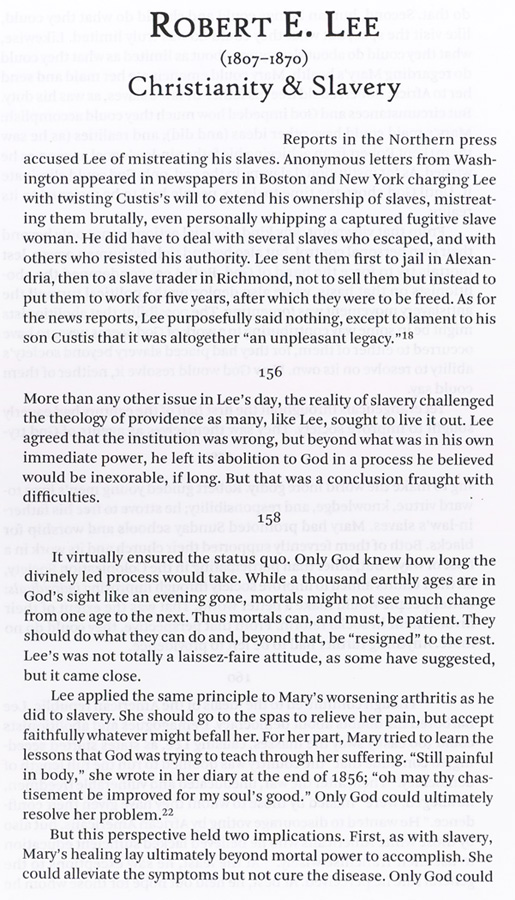 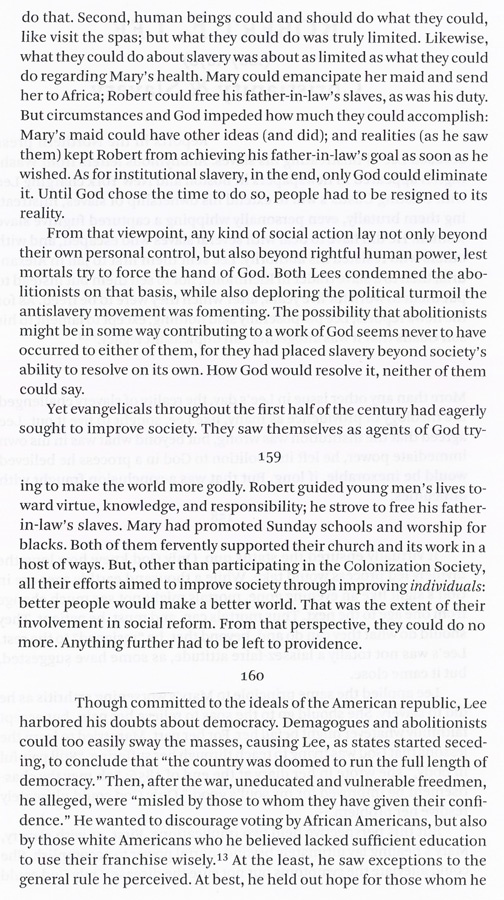 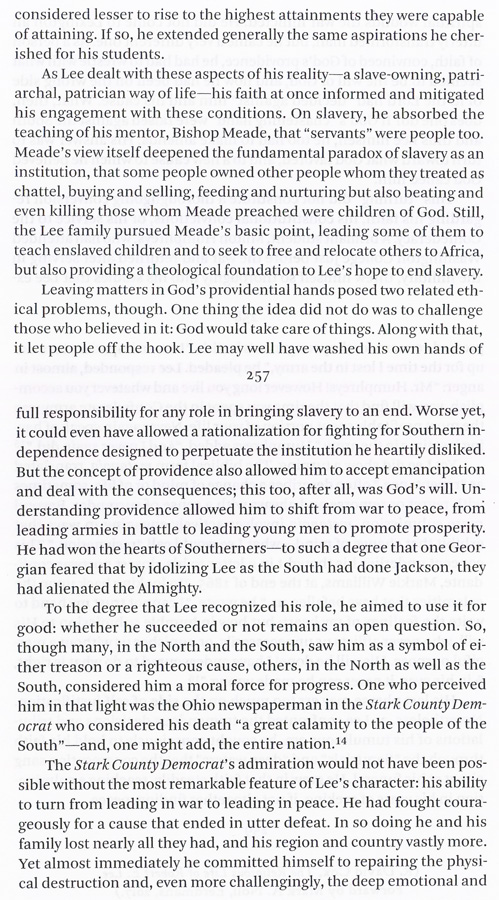 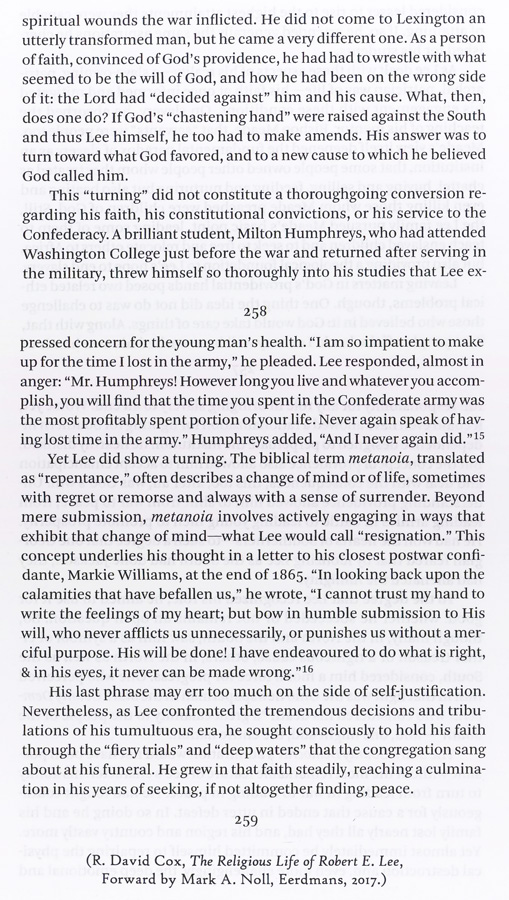 |
|
December Book
With the Mind:
Readings in Contemporary Theology
3-5 pm in the Church Lounge, Saturday, December 23rd The book for
December is The
Passionate Intellect: Christian Faith and the Discipleship of
the Mind (2010) by Alister McGrath, professor of theology at
King’s College, London. McGrath writes this book to show the
right place for reason in Christian living. On the one hand he
argues that we are not required to displace or degrade the
“human mind; rather, human reason is illuminated and energized
through faith so it may transcend its natural limitations” (p.
58). But on the other hand he also shows that “no conceptual
matrix, religious or secular, can fully cope with the immensity
and complexity of our experience. Life is indeed a mystery,
something that cannot be contained with a constraining
theoretical cage” (p. 68).
A copy of this important book is in the library. If you would
like to purchase one for yourself, contact Pastor Marshall. Feel
free to attend our meeting when we discuss the right role for
reason in Christian living.
ANNOUNCEMENTS:
DECORATING SIGN UP LIST:
Please sign up if
you are able to help with decorating this year.
Immediately following the 10:30 am liturgy on December
24th the decorating will begin.
Snacks will be provided in room C.
The more people who sign up and help the faster we’ll all
be able to enjoy our families and return for our beautiful
Christmas Eve Service.
PASTOR MARSHALL’s
next four week class on the Koran starts on Thursday, January
4th. Call the
office to register for the class.
FOOD BANK COLLECTION
suggested donation for December is holiday foods.
And, don’t forget to bring a couple of cans of food to
the St. Nicholas Faire!
SACRAMENT OF PENANCE:
Sat., December 16th, 3-5
pm.
CHRISTMAS CAROLING PARTY:
Tuesday, December 26th, meet at Christo’s on Alki at 5:00 pm for
a no host meal.
Then go caroling to shut-ins in the congregation.
Everyone is welcome to come along.
Please sign up on the list that is posted in the lounge.
Compass Housing
Alliance
is in need of Christmas gift items for their housing centers for
both men and women. Please leave your donations at the office.
The items collected will be delivered after Sunday, December
10th.
2018 FLOWER CHART:
The new chart will be up at the end of the month.
Sign up early for the best choice of dates.
MANY THANKS
to the Kahn family and many helpers who arranged for the German
food preparation and presentation; David King for the beer and,
all those who helped with the clean up for the 500th Anniversary
of the Reformation reception on Sunday, October 29th.
Also thanks to the
Enzian Schuhplattler
dancers for an outstanding old world dance presentation. |
|
ROBERT
W. JENSON
(1930–2017)
“Perhaps instead of being embarrassed by the Genesis account [of
creation], we should be emboldened to emulate its courage, by
similar theological appropriation and critique of current
scientific opinion and problems – knowing, to be sure, that in a
few centuries, if the world lasts so long, our current cosmology
and evolutionary theory will seem as quaint as the tale of six
days does now.”
[Robert W. Jenson, Canon and Creed (Westminster John Knox
Press, 2010) p. 98.] |
|
X
PARISH PRAYERS
X
Remember in prayer before God those whom He has made your
brothers and sisters through baptism.
Sam & Kevin Lawson, Pete Morrison, Mia Schorn, Asha Sagmoen,
Melanie Johnson, Marlis Ormiston, Eileen Nestoss, Emma Sagmoen,
Jennifer Combs, Celia Balderston, The PLU Lecturers, Tabitha
Anderson, Jordan Corbin, Nell & Paul Sponheim, Lee & Lois Snook,
The Rev. Kari Reiten, The Rev. Paul Smith, The Rev. Joanne Brown
& Kristie, Ion & Galina Ceaicovschi, Nathan & Les Arkle,
Margaret Douglass, Chris & Margeen Boyer, Elizabeth Banek,
Clinton Johnson, Jeanne Pantone, Diana Walker, Jack & Sheila
Feichtner, Michael Simonds, Martin Nygaard, Myra Skubitz,
Charles Wilson, Robert Bly.
Pray for those mourning over death:
Pray that God will bear their grief and lift their
hearts: Pray for
the family and friends of Evelyn Coy on her death.
Evelyn’s funeral and reception are scheduled for
Saturday, December 16th at 11 am.
Pray for the shut-ins that the light of Christ may give them
joy: Bob & Barbara Schorn, Chuck & Doris Prescott, C. J.
Christian, Louis Koser, Anelma Meeks, Dorothy Ryder, Lillian
Schneider, Crystal Tudor, Nora Vanhala, Mildred Nikula, Mary
Goplerud.
Pray for our bishops Elizabeth Eaton and Brian Kirby Unti, our
pastor Ronald Marshall, our deacon Dean Hard and our cantor
Andrew King, that they may be strengthened in faith, love and
the holy office to which they have been called.
Pray that God would give us hearts which find joy in service and
in celebration of Stewardship.
Pray that God would work within you to become a good
steward of your time, your talents and finances.
Pray to strengthen the Stewardship of our congregation in
these same ways.
Pray for the hungry, ignored, abused, and homeless this Advent &
Christmas. Pray for
the mercy of God for these people, and for all in Christ's
church to see and help those who are in distress.
Pray for our sister congregation:
El Camino de Emmaus in the Skagit Valley that God may
bless and strengthen their ministry.
Also, pray for our parish and it's ministry.
Pray that God will bless you through the lives of the saints:
Saint Thomas, Apostle; Saint Stephen, Deacon and Martyr; Saint
John, Apostle and Evangelist; and The Holy Innocents, Martyrs. |
|
A Treasury of Prayers Unto us a child is born. Halleluiah! Unto us a
son is given. Hallelujah! Help me, Lord God, that I, being
released from my old sinful birth, may be made a partaker of the
new birth in the flesh of your beloved Son, and ever continue in
the same. In Jesus’ name I pray. Amen.
[For All the
Saints I:138, altered] |
